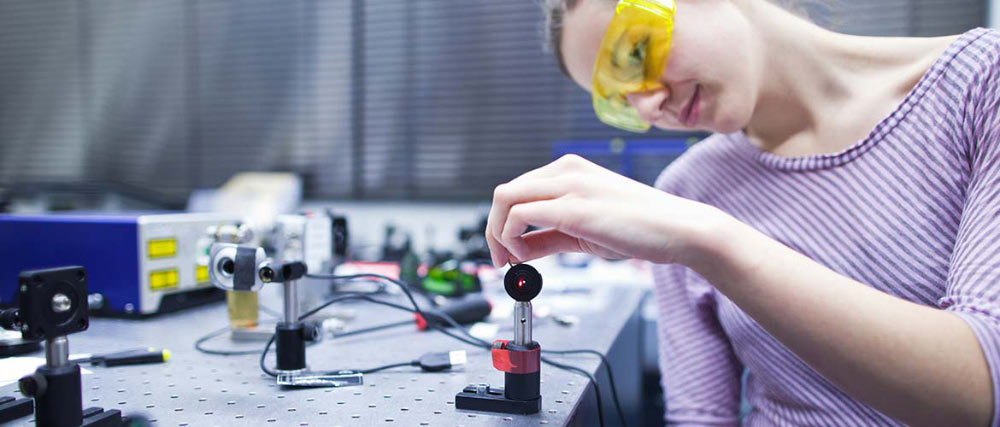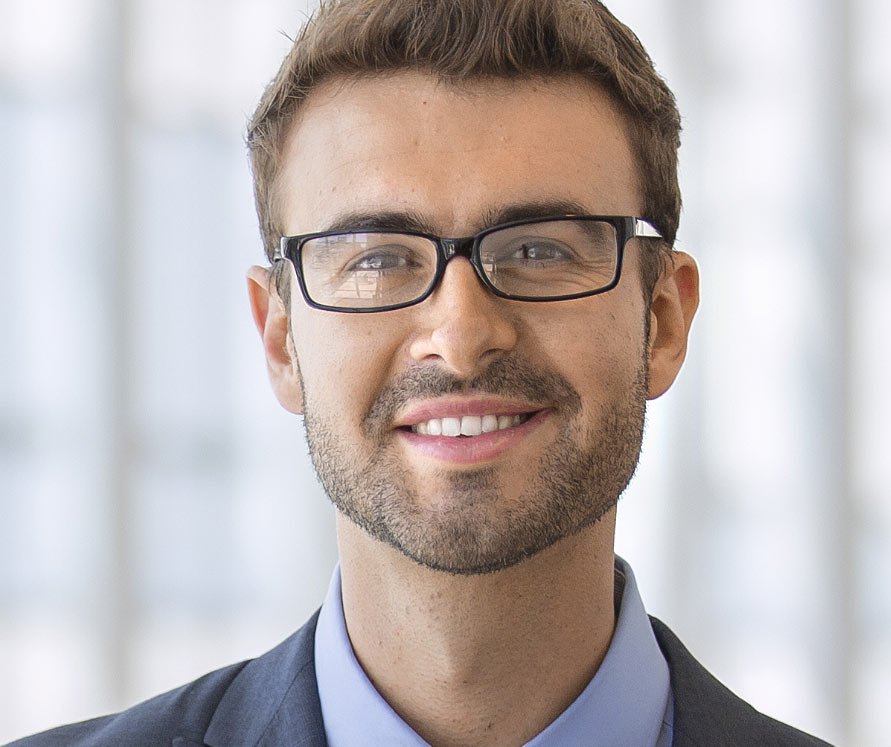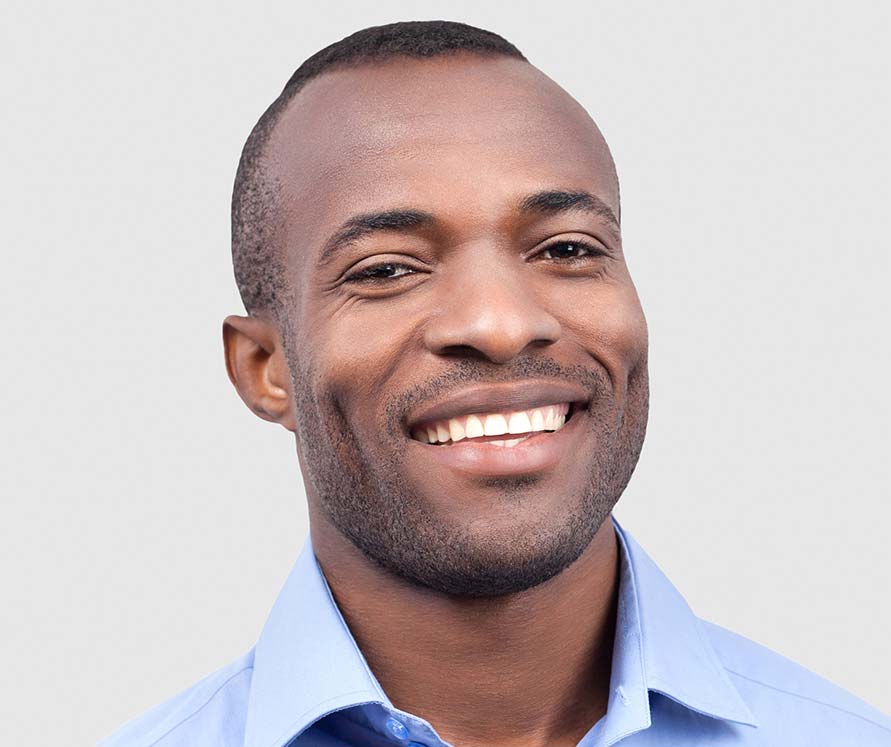Project Description
Tomorrows Leaders
World Elite Young Leaders Summit
Build Your Future With The Big Ben Award Committee and The Committee of World Leaders Summit
Sustainable Development Goals
International Focus – The Sustainable Development Goals are a call for action by all countries — poor, rich and middle-income — to promote prosperity while protecting the planet.
THE GOAL – A BLUE PLANET, A HEALTHY FUTURE
Focus On People – “We need to save our ocean to protect our future.” – UN Secretary-General António Guterres
World Dedication – Conserving and Sustainably Using the World’s Ocean, Seas and Marine Resources.
Career Placement – Nunc nec turpis sit egestas scelerisque at finibus ligula
The ocean covers more than 70 percent of the earth’s surface. As the planet’s largest ecosystem, the ocean regulates the climate, generates oxygen and provides livelihoods for billions. More than 3 billion people depend on marine and coastal biodiversity for their livelihoods. The ocean also contributes to current and future sustainable economic growth.
A healthy, productive, sustainable and resilient ocean is fundamental to life on our planet and to our future.
Yet, our ocean is facing a global emergency. Climate change poses adverse effects on the ocean and marine life, including the rise in ocean temperatures, ocean acidification, deoxygenation, sea level rise, the decrease in polar ice coverage, decrease in marine biodiversity, as well as coastal erosion and extreme weather events and related impacts on island and coastal communities. Cumulative human activities also cause ecosystem degradation and species extinctions. 2022 is the year to stop the decline.
What you need to know about Stockholm+50
On 2 and 3 June 2022, world leaders and representatives from government, business, international organizations, civil society and youth will gather in Sweden for Stockholm+50 – an international meeting to drive action towards a healthy planet for the prosperity of all.
The event comes at a crucial time as the Earth is in emergency mode, and urgent action is needed to address the triple planetary crisis of climate change, nature and biodiversity loss, and pollution and waste.
So what exactly is Stockholm+50, and why is it important?
What is Stockholm+50?
Co-hosted by Sweden and Kenya, Stockholm+50 will take place under the theme “a healthy planet for the prosperity of all – our responsibility, our opportunity.”
The two-day meeting will commemorate the 50th anniversary of the United Nations Conference on the Human Environment in Stockholm – which marked a new era of global cooperation.
At the 1972 conference, 113 countries adopted the Stockholm Declaration and Action Plan for the Human Environment , placing environmental issues at the forefront of international concerns. The conference also led to the creation of the UN Environment Programme (UNEP) and began an important dialogue between industrialized and developing countries on the links between the environment, economic growth and human well-being.
Stockholm+50 marks a milestone in our collective journey toward a healthy planet. It offers the opportunity to reflect on, celebrate and build upon 50 years of environmental action.
The meeting will be organized around plenary segments , three leadership dialogues and side events that will focus on the importance of multilateralism in tackling the triple planetary crisis.
It will also reinforce the outcomes of the fifth UN Environment Assembly , which took place earlier this year in Nairobi, Kenya.
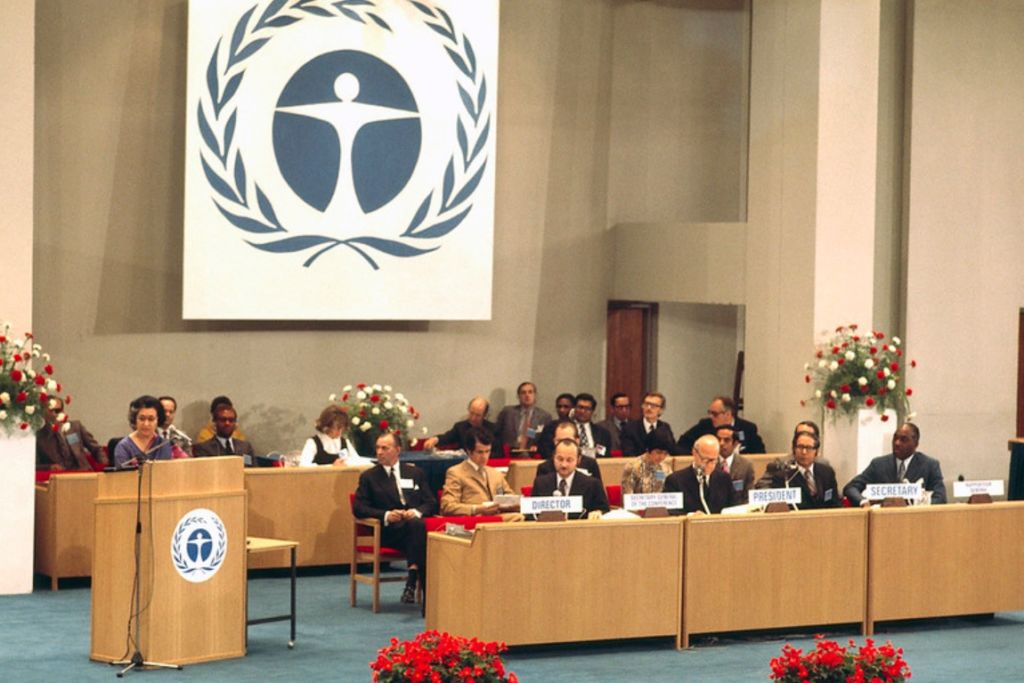
Mrs. Indira Gandhi, former Prime Minister of India, addresses the 1972 Stockholm Conference. Photo: UN Photo/Yutaka Nagata
What is the triple planetary crisis?
The triple planetary crisis consists of three interlinked issues threatening human and environmental health: climate change, nature and biodiversity loss, and pollution and waste.
The climate crisis is causing more frequent extreme weather events such as storms and droughts, which worsen food and water scarcity. Research shows that to stave off a climate catastrophe , the world must halve annual greenhouse gas emissions by 2030 to reach net-zero by 2050.
Human activities have modified 77 per cent of land (excluding Antarctica) and 87 per cent of the ocean . More than 2 billion hectares of land is degraded due to overuse or mismanagement. and one million species face extinction.
Air pollution, the greatest environmental threat to public health globally, accounts for an estimated 7 million premature deaths every year . 11 million metric tons of plastic waste enter our ocean every year. At the same time, we produce 50 million tons of e-waste.
How will Stockholm+50 address the planetary emergency?
Stockholm+50 will help accelerate the implementation of the2030 Agenda and the Sustainable Development Goals to achieve a healthy planet – which is essential for social and economic progress, well-being, and resilience.
By gathering a broad set of stakeholders from all around the world, the meeting will emphasize the importance of a multi-actor, multi-sector approach to addressing environmental issues and embody the importance of collaborative action. Stockholm+50 also highlights our intergenerational responsibility to protect the Earth and ensure that life support systems are available to all.
For 50 years, the world has come together to confront the planet’s biggest environmental challenges , from eradicating the production of leaded fuel to protecting more than 38,000 species and mending the hole in the ozone layer. This global cooperation has restricted the international trade in mercury, banned hazardous chemicals and reduced renewable energy prices.
But 50 years on, the need to accelerate action for the environment, poverty alleviation and human rights is more urgent than ever.
Stockholm+50 provides a unique opportunity to be another turning point and steer humanity back on the path to a healthy planet and the prosperity of all.
Follow the Stockholm+50 feed for updates.
This story was originally published on 25 May 2022 on the UNEP site: https://www.unep.org/news-and-stories/story/what-you-need-know-about-stockholm50
| Course 1 | Course 2 | Course 3 | Course 4 |
|---|---|---|---|
| Curabitur aliquet quam | Mauris sed leo egestas | Pellentesque a tellus nec | Nunc vestibulum ipsum eu |
| Curabitur aliquet quam | Mauris sed leo egestas | Pellentesque a tellus nec | Nunc vestibulum ipsum eu |
| Curabitur aliquet quam | Mauris sed leo egestas | Pellentesque a tellus nec | Nunc vestibulum ipsum eu |
| Curabitur aliquet quam | Mauris sed leo egestas | Pellentesque a tellus nec | Nunc vestibulum ipsum eu |
| Curabitur aliquet quam | Mauris sed leo egestas | Pellentesque a tellus nec | Nunc vestibulum ipsum eu |
| Curabitur aliquet quam | Mauris sed leo egestas | Pellentesque a tellus nec | Nunc vestibulum ipsum eu |
| Curabitur aliquet quam | Mauris sed leo egestas | Pellentesque a tellus nec | Nunc vestibulum ipsum eu |
| Curabitur aliquet quam | Mauris sed leo egestas | Pellentesque a tellus nec | Nunc vestibulum ipsum eu |
World Elite Young Leaders Summit
The Summit Dialogues are a powerful opportunity to engage meaningfully and explore collectively how to achieve sustainable systems.
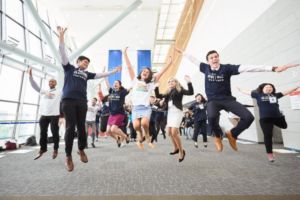




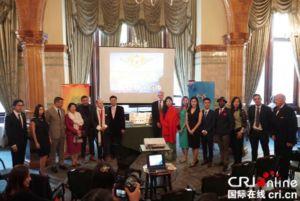
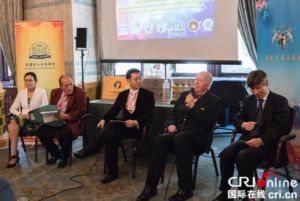
Young people show leadership in shaping outcomes of UN Food Systems Summit
Youth voices were strong throughout the three-day Pre-Summit declaring they are ‘the leaders of today’
July 28, 2021, ROME – At the closing of the three-day United Nations Food Systems Pre-Summit in Rome, Italy Minister of Foreign Affairs Luigi Di Maio started his closing remarks by commending youth for their leadership in the transformation of food systems.
In the same closing event with a room full of delegates from around the world, youth leader from Lebanon Rayan Kassam said the main message for governments to take forward to the Summit in New York in September is that “we want to sit at the table with you when you make decisions about our future food systems.”
Young people are fully incorporated into leadership positions within the UN Food Systems Summit with the architecture intentionally designed to include young people from around the world. From the five Action Tracks to the Champions Network, young people have played a key part in preparations for the Summit in September.
“This is honestly the first Summit I have seen youth leadership at the heart of the Summit itself, in decision-making positions, and I’m really really hoping this can serve as a role model for future UN Summits,” said Marie-Claire Graf, a youth leader from Switzerland.
Youth have led Summit dialogues and created a self-organizing group. Through a month-long online consultation process and a pledge initiative, youth are given the opportunity to deliberate and identify solutions and priorities they will take forward beyond the summit.
Close to 10,000 young people from around the world have participated in the Summit process, including a dedicated Global Youth Dialogue in May and their participation and leadership across other dialogues in 145 countries over the past two years.
“Throughout the whole year, the youth have had an outstanding contribution towards the Food Systems Summit process. The youth have led from the front, and are actually exemplifying that we are not the leaders of tomorrow, we are the leaders of today,” said Victor Mugo, a youth leader from Kenya who spoke at the Pre-Summit session on youth actions for food systems.
The session at the Pre-Summit comes on the heels of the launch of a UN report on youth and agriculture, which underscores the urgent need to make food systems more apealing to young people to secure the future of global food security and nutrition.
The growing youth population is raising issues of health, education and employment for the next generation, with forecasts that more than half of the population in Africa will be under 25 by 2050.
Young people have also been disproportionately impacted by the Covid-19 pandemic, with youth employment falling by 8.7 per cent in 2020 compared with 3.7 per cent for adults, according to UN figures.
Against this backdrop, the youth delegation at the Pre-Summit have created a statement of action to advocate for governments to among others things “smooth barriers” and provide better access to financing, risk mitigation measures, information and knowledge, as well as ensure minimal and decent wages for people working within food systems.
Lana Weidgenant, youth leader from Brazil and Action Track Vice-Chair, UN Food Systems Summit 2021, said, “We invite your partnership today to turn youth momentum into policy results as we look forward to the September UN Food Systems Summit.”
-Ends-
About the 2021 UN Food Systems Summit
The UN Food Systems Summit was announced by the UN Secretary-General, Antonio Guterres, on World Food Day last October as a part of the Decade of Action for delivery on the SDGs by 2030. The aim of the Summit is to deliver progress on all 17 of the SDGs through a food systems approach, leveraging the interconnectedness of food systems to global challenges such as hunger, climate change, poverty and inequality. More information about the 2021 UN Food Systems Summit and list of Advisory Committee and Scientific Group members can be found online: https://www.un.org/foodsystemssummit
Notes to editors
Journalists can register for news updates from the Summit here. For more information, contact FSScommunications@un.org
Youth bridge
Sharifah Shakirah, Founder and Director of the Rohingya Women Development Network, said that the 2030 Agenda was launched to end poverty and set the path to peace, prosperity and equality for all on a healthy planet.
However, “today, we live in two different worlds”, she said, noting that in one, privileged people are protected by their countries, and in the other – exemplified by where she was born – children are forced to flee violence and persecution.
Describing young people as the bridge between both worlds, she pointed out that, even before the onset of the COVID-19 pandemic, one in five youth globally suffered from limited access to education, and one in four faced conflict.
Now, in the context of the pandemic, “young people are maintaining open communication with their communities”, including by creating grassroots organizations and providing assistance to others on the ground.
UN partners
Those sentiments were echoed by a range of UN officials, who praised the countless young people that contributed to both the Forum and COVID-19 recovery efforts at every level.
Liu Zhenmin, Under-Secretary-General for Economic and Social Affairs (DESA), welcomed the active contributions of young people, which personify the UN’s goal of “leaving no one behind.”
Meaningful engagement with youth is at the core of DESA’s work, including in climate change action and financing for development, he said, adding that his department it is always exploring new ways to engage with young people such as through its UN Youth Delegates programme.
Taking the wheel
“You have rightly demanded to be in the driver’s seat in devising the recovery efforts and a seat at the table when decisions are taken that would impact your own future,” said ECOSOC President Collen Vixen Kelapile.
After two challenging years of lockdowns, quarantines, social distancing, treatment inequities, and the loss of livelihoods for millions, he noted that young people have shared their visions of how to get back on track to accelerate the implementation of the SDGs.
Emphasizing that the pandemic affected young people most, Mr. Kelapile said it also revealed how their leadership, resourcefulness and dedication can turn major crises into opportunities for a fairer, more inclusive and more equitable future.
Against that backdrop, he added that “there is no shortage of good will, commitment and desire to act among you” and pledged the UN’s solidarity going forward.
Source: UN News
Global Youth Summit Dialogue spotlights the critical role of youth in ensuring Good Food for All
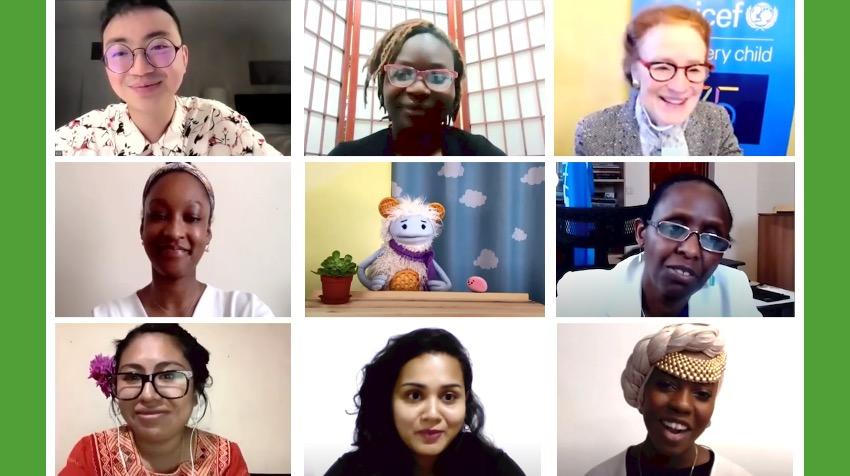
More than 100 young people came together at the May 4 Global Youth Summit Dialogue: Good Food for All, to discuss issues, emerging ideas and innovations related to the future of global food systems.
Participants discussed the meaning of “good food”, shared their ideas and keys insights, and touched on different topics such as agriculture, education, equality, social justice, human rights and climate change.
On the one hand, we have many advances in our rights, but on the other there are movements that are acting against our rights, and now more than ever we must accelerate our commitments. We must stay committed to the profound transformation of food,” said Jessica Vega Ortega, Co-President of the Global Caucus of Indigenous Youth, Mexico.
The Dialogue, convened by UN Secretary-General’s Special Envoy for the Food Systems Summit Dr. Agnes Kalibata and Executive Director of UNICEF Henrietta H. Fore hosted such high-level speakers as UN Deputy-Secretary General Amina J. Mohammed, UN Secretary-General’s Envoy on Youth Jayathma Wickramanayake, Agriculture Extension Specialist Janya Green, and Co-President of the Global Caucus of Indigenous Youth, Jessica Vega Ortega. The event also featured special appearances from Waffles + Mochi and a moving poem about the lost culture of food from Sudanese-American slam poet and UNHCR Goodwill Ambassador Emi Mahmoud.
The UN Food Systems Summit Dialogues are a powerful opportunity to engage meaningfully and explore collectively how to achieve sustainable food systems. Anyone interested in food systems can also convene an Independent Summit Dialogue and contribute directly to the Summit’s vision and objectives.
The UN Food Systems Summit will host a Global Youth Summit Dialogue, featuring headline speakers and 100 youth advocates.
Global Youth Summit Dialogue
WHAT: The UN Food Systems Summit will host a Global Youth Summit Dialogue, featuring headline speakers and 100 youth advocates to unite a growing movement behind the transformation of food systems around the world to achieve progress toward the Sustainable Development Goals (SDGs) by 2030.
The event will also mark the launch of the Good Food For All campaign, galvanize ideas towards a better food systems and set in motion a series of youth-led Independent Summit Dialogues.
WHEN: Tuesday, May 4, 9am EST/2pm BST/ 11pm AEST
WHO: The Dialogue will be convened by:
- Agnes Kalibata, UN Secretary-General’s Special Envoy for the Food Systems Summit
- Henrietta H. Fore, Executive Director of UNICEF
The Special guests will include:
- Amina J. Mohammed, UN Deputy Secretary-General
- Jayathma Wickramanayake, the UN Secretary-General’s Envoy on Youth
- Janya Green, agricultural extension specialist, US
- Jessica Vega Ortega, Indigenous Peoples youth leader, Mexico
- Waffles and Mochi from the Netflix series of the same name
WHERE: The opening session of the Dialogue will be broadcast on UN WebTV and the UN Food Systems Summit Facebook.
WHY: The UN Food Systems Summit Global Youth Dialogue – Good Food For All is a part of the upcoming UN Food Systems Summit. In September 2021, United Nations Secretary-General António Guterres will convene the first Summit to launch bold new actions to transform the way the world produces and consumes food, to deliver progress on all 17 SDGs, each of which relies to some degree on more sustainable and equitable food systems. Youth have leadership roles throughout the Summit, including in the Advisory Committee, Action Tracks, and Champions Network. Through the Food Systems Summit Dialogues, youth have a seat at the table to deliberate on their role in food systems and how they can unite around transformative actions in support of sustainable development.
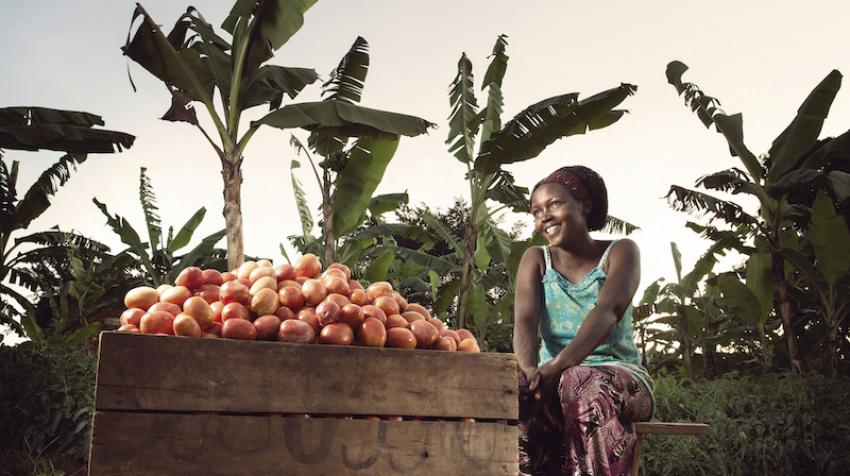
Young people can play a role in building food systems during crises like COVID-19
Mike Nkhombo Khunga – a Global Youth Advocate for Nutrition and a Vice-chair of Action Track 5 – highlights youth as important drivers of food systems during crises like COVID-19, and that their participation in nutrition and food system platforms enhances the understanding of nutrition amongst peers and beyond. He also calls for better representation of and for the voice of youth in local, national global dialogues around food systems and nutrition.
Never before has a generation been so proactive in the way we think about food and environment. As it stands young people are to inherit a planet that will be four degrees warmer, threatening the availability and nutrition quality of what they eat as well as the air they breathe. The question that has to be answered by all key players in the food systems is: how are young people involved in transforming the food system so that it becomes resilient, affordable and accessible to all?” — Mike Nkhombo Khunga
COURSE TUTORS
COME ON! Joing Over 2,055,000,000 Global Interested Persons and Parties Enjoying BBA & GAB & OTHERS' Shining now
Become Part of Our Winners List to Make You Great.


